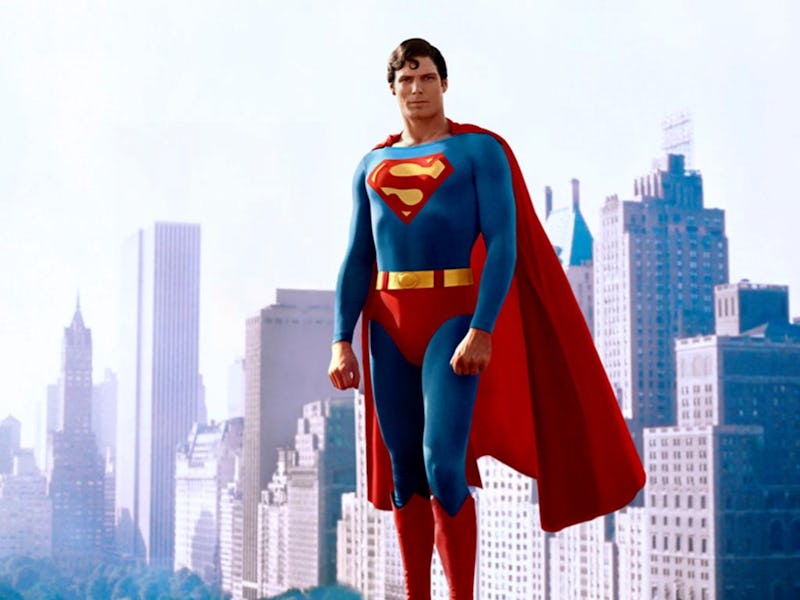Christopher Reeve’s Humanist Portrayal of Superman Hasn’t Been Topped Yet
Everyone gets the super part right, but few people understand the man.

Superman is generally considered the simplest superhero. Not just because he’s the model by which the American superhero genre was eventually defined, but because his most consistent feature over the past 85 years is that he’s good. He’s a good dude who wants to do good, and when the going gets tough, he tries his best to stay good. This, of course, provides a conundrum for writers and creators: a story requires an emotional arc, so how do you make Superman, the eternal Boy Scout, interesting? So far, the movie that best answers this question is the original 1978 Superman, the only Superman film to completely trust in the idea that Superman’s efforts to do good are inherently interesting.
Directed by Richard Donner, the filmmaker behind The Omen, Lethal Weapon, and The Goonies, Superman posits that Superman’s goodwill toward mankind is his most relatable aspect. And it is! Aside from Lex Luthor, a man whose base nature is to try and bend his fellow man under his thumb, every other character, including supporting antagonist Eve Teschmacher, inevitably leans toward communal kindness. Even Superman actor Christopher Reeve admitted that, to the outside eye, Superman’s devotion toward “truth” and “justice” seems naive, but the proof is in the outcome. Superman’s example becomes humanity’s duty.
After making Superman relatable in this way, Donner then goes on to toy with attributes that also render him a three-dimensional character. Because no matter how straightforward his ethos is, it doesn’t preclude him from being as intricately textured as anyone else. As portrayed by Reeve, Superman is infinitely charming, and even romantic (when Lois Lane interviews him on her patio roof, Superman shows he can flirt with the best of them). Though he is humanity’s hope, he’s also amused by man; even when he’s corralling lawbreakers, his reaction is more empathetic than angry.
Of course, the climax of Superman does result in Superman becoming very, very angry, so angry he rebels against his late father’s mandates and interferes with time itself to undo tragedy. Much has been made of Superman spinning around the world so fast that it reverses history, but the logical whatevers of it are secondary to the human importance. Kal-El follows adopted father Jonathan Kent’s words rather than Jor-El’s, becoming a true son of the Earth along with being the last son of Krypton. One of mankind’s most identifiable traits is anger, and the choices made while in the heat of rage. From his persona as goofy reporter Clark Kent to changing the world’s entire timeline as its most powerful hero, Superman is allowed the full spectrum of a character.
It’s a testament to Reeve’s dedication that he’s able to keep Superman watchable through three sequels, two of which are deeply uneven. He’s consistently able to find layers to Superman, whether he’s adding cheeky little moments in II, comedic bits in III, or even preachy derring-do in IV. His ties to the character resist all manner of reboot, and it’s difficult, even today, to not see the late actor as Superman.
No other interpretation has matched the humanism Christopher Reeve brought to the role.
That’s not to say there haven’t been earnest efforts. Henry Cavill certainly doesn’t lack in charisma, blending square-jawed good looks with a kind of dorky knowingness. And though director Zack Snyder filled the climax of Man of Steel with unrestrained destruction, it’s clear he was working toward an eventual metamorphosis for the character, and that what we’re seeing are nascent growing pains. But like many characters in his DC Extended Universe, Superman often serves less as a true character than as Snyder’s thematic application. We get Superman as a god among men, but the actual character was underserved.
Looking back on the 1978 Superman is a refreshing experience, and not just because the lessons and patience it showed seem to have been all but forgotten in the more perfunctory stylings of modern expanded universes. Rather, it never ceases to reinvigorate the potential of Superman as a cinematic character. It cares about Superman, not just as an idea or a symbol, but as a real character, treated in the same way you’d treat the cast members that weren’t born on Krypton. Reeve set a bar for all interpretations to come. The tagline for Superman said, “You’ll believe a man can fly,” but more importantly, it made us believe a god from space could be a man.